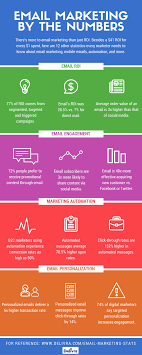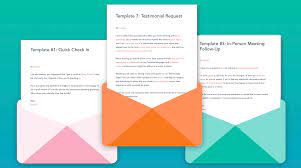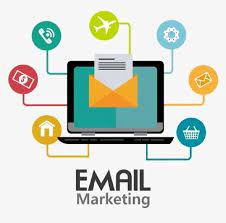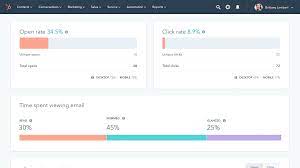The Power of Company Email Marketing
In today’s digital world, where social media and online advertising dominate the marketing landscape, it’s easy to overlook the importance of email marketing. However, for businesses of all sizes, company email marketing remains a highly effective and valuable tool.
Building Relationships:
One of the key advantages of company email marketing is its ability to foster and nurture relationships with customers. By sending regular emails to your subscribers, you can stay connected and engaged with them. Whether it’s sharing updates about your products or services, providing valuable content, or offering exclusive promotions, email allows you to create a personalized and direct line of communication.
Targeted Messaging:
Unlike traditional mass advertising methods, company email marketing enables you to segment your audience and send targeted messages. By understanding your subscribers’ preferences, interests, and behaviors, you can tailor your emails to specific groups. This ensures that the right message reaches the right people at the right time. Targeted messaging not only increases engagement but also improves conversion rates.
Cost-Effective:
Compared to other marketing channels like print or television ads, company email marketing is incredibly cost-effective. With minimal expenses involved in creating and sending emails, it provides a high return on investment (ROI). Additionally, by leveraging automation tools and templates, you can streamline your email campaigns further and save valuable time.
Measurable Results:
Another significant advantage of company email marketing is its measurability. Through various analytics tools available today, you can track key metrics such as open rates, click-through rates (CTR), conversion rates, and more. These insights allow you to evaluate the effectiveness of your campaigns in real-time and make data-driven decisions for future improvements.
Enhancing Brand Awareness:
Consistent communication through company emails helps strengthen brand awareness among your audience. By consistently showcasing your brand voice, values, and offerings in each email sent out, you reinforce your presence in their minds. This continuous exposure builds trust and loyalty, making customers more likely to choose your products or services over competitors.
Driving Sales and Conversions:
Ultimately, the goal of any marketing effort is to drive sales and conversions. Company email marketing excels in this area. By strategically crafting compelling email content, including persuasive calls-to-action (CTAs), you can guide subscribers towards making a purchase or taking a desired action. With the right combination of engaging content and well-designed emails, you can significantly boost your conversion rates.
Conclusion:
In an era where digital marketing strategies are constantly evolving, company email marketing remains a powerful tool for businesses. It allows you to build relationships with customers, deliver targeted messages, and achieve measurable results while being cost-effective. By leveraging the potential of company email marketing, you can enhance brand awareness, drive sales, and ultimately grow your business in today’s competitive landscape.
7 Essential Tips for Effective Company Email Marketing
- Use a professional email address – avoid using personal emails for business communication.
- Keep it short and to the point – use concise language and get straight to the point.
- Personalise your emails – add names, company details, etc. to make them more personalised and relevant to each recipient.
- Include a call-to-action – this encourages people to take action after reading your email (e.g., click here, download now).
- Test different subject lines – try different approaches to see which one works best for your audience and campaigns
- Monitor results – track open rates, click-throughs, conversions etc., so you can adjust your approach accordingly
- Follow up – consider sending follow up emails if you don’t get an initial response from customers or prospects
Use a professional email address – avoid using personal emails for business communication.
The Importance of Using a Professional Email Address for Business Communication
When it comes to company email marketing, one crucial tip that often goes overlooked is the use of a professional email address. While it may be tempting to use a personal email account for business communication, doing so can have negative implications for your brand image and professionalism.
First impressions matter, and your email address is often the first point of contact between you and potential customers or business partners. Using a professional email address that includes your company’s domain name not only looks more credible but also instills trust in recipients. It demonstrates that you take your business seriously and are committed to maintaining a professional image.
Using a personal email address for business communication can raise doubts about your legitimacy and professionalism. It may give the impression that you are not fully invested in your business or lack attention to detail. This perception can deter potential customers from engaging with your emails or even considering your products or services.
A professional email address also helps with brand recognition and consistency. When recipients see an email from your company’s domain, it reinforces your brand identity and increases brand recall. On the other hand, using a personal email address can lead to confusion or make it harder for recipients to associate the communication with your brand.
Moreover, having a professional email address allows you to customize it according to specific roles or departments within your organization. For example, using addresses like [email protected] or [email protected] helps recipients quickly identify the purpose of the email and ensures that it reaches the right person within your team.
Additionally, using a professional email address offers practical benefits such as enhanced security features and better organization of business-related emails separate from personal correspondence. This separation streamlines communication processes, making it easier to manage and respond promptly to important business inquiries.
In conclusion, when engaging in company email marketing, remember the importance of using a professional email address. It not only enhances credibility but also reinforces trust in your brand. By avoiding the use of personal emails for business communication, you project a more professional image, strengthen brand recognition, and ensure efficient organization of your emails. Make a positive first impression and establish yourself as a reputable business by using a professional email address that aligns with your company’s domain.
Keep it short and to the point – use concise language and get straight to the point.
The Art of Concise Communication in Company Email Marketing
In the fast-paced world of digital communication, brevity is key. When it comes to company email marketing, keeping your messages short and to the point is crucial for capturing your audience’s attention and delivering your message effectively.
Why is concise language important in company email marketing?
Grabbing Attention:
Inboxes are often flooded with emails competing for attention. By using concise language, you can quickly grab the reader’s attention and make an immediate impact. A clear and succinct subject line followed by a brief, focused message ensures that your email stands out amidst the clutter.
Saving Time:
People are busy, and their time is valuable. Long-winded emails may deter recipients from reading the entire message or cause them to skim through it hastily, missing important information. By using concise language, you respect your audience’s time and increase the chances of them engaging with your content.
Enhancing Clarity:
Complex messages can confuse readers and dilute the impact of your communication. By getting straight to the point with concise language, you eliminate unnecessary fluff and ensure that your main message is crystal clear. This clarity helps recipients understand your intentions quickly and respond accordingly.
Mobile-Friendly Approach:
With more people accessing emails on their mobile devices, brevity becomes even more crucial. Mobile screens have limited space, making it essential to keep emails short and scannable for easy reading on smaller screens. Concise language allows you to convey information effectively without overwhelming mobile users.
Increasing Conversion Rates:
A well-crafted call-to-action (CTA) is a vital component of any company email marketing campaign. By using concise language to deliver a compelling CTA, you create a sense of urgency and encourage recipients to take action promptly. Clarity in your message increases the likelihood of conversions as readers understand exactly what they need to do next.
Tips for keeping company emails concise:
Start with a clear objective: Identify the main purpose of your email and focus on delivering that message concisely.
Use bullet points or numbered lists: Breaking down information into digestible chunks makes it easier for readers to quickly grasp key points.
Remove unnecessary details: Trim any excess information that does not directly contribute to the main message.
Edit and revise: Review your email multiple times, removing redundant phrases or sentences that could be consolidated.
Test readability: Read your email out loud or ask a colleague to review it to ensure it flows smoothly and is easy to understand.
In conclusion, mastering concise language in company email marketing is essential for effective communication. By keeping your messages short, direct, and focused, you grab attention, save time, enhance clarity, cater to mobile users, and increase conversion rates. Embrace the art of brevity in your emails and watch as your engagement rates soar.
Personalise your emails – add names, company details, etc. to make them more personalised and relevant to each recipient.
The Power of Personalization in Company Email Marketing
When it comes to company email marketing, personalization is a game-changer. Gone are the days of generic, one-size-fits-all emails that end up in the spam folder. Today, customers expect personalized and relevant content that speaks directly to them. Adding names, company details, and other personalized elements to your emails can make a significant impact on your campaign’s success.
Building Stronger Connections:
Personalization allows you to create a more intimate and meaningful connection with your recipients. By addressing them by their names and acknowledging their specific company details, you demonstrate that you value them as individuals. This personal touch helps to establish trust and builds a sense of loyalty towards your brand.
Increasing Engagement:
When an email feels tailored to an individual’s needs and interests, it is more likely to capture their attention. Personalized emails have higher open rates because recipients see them as relevant and valuable. By incorporating personalized elements into your emails, you can pique the interest of your audience and encourage them to engage further with your content.
Enhancing Relevancy:
Adding names and other personalized information allows you to create targeted messages that align with each recipient’s specific needs or preferences. By segmenting your email list based on demographics or past interactions, you can tailor the content accordingly. This relevancy increases the chances of recipients finding value in your emails and taking the desired action.
Improving Conversion Rates:
Personalization has been proven to drive higher conversion rates in company email marketing campaigns. When recipients feel like the email was crafted specifically for them, they are more inclined to respond positively. By customizing your calls-to-action (CTAs) based on individual preferences or previous interactions, you can guide recipients towards making a purchase or taking another desired action.
Creating Memorable Experiences:
In today’s digital age where customers are bombarded with countless marketing messages every day, personalization helps your emails stand out from the crowd. By making your emails more relevant and tailored, you create a memorable experience for your recipients. This positive experience increases the likelihood of them remembering your brand and returning for future interactions.
In conclusion, personalization is a powerful tool in company email marketing. By adding names, company details, and other personalized elements to your emails, you can build stronger connections with your audience, increase engagement, enhance relevancy, improve conversion rates, and create memorable experiences. Embrace the power of personalization in your email campaigns to truly connect with your recipients and achieve remarkable results.
Include a call-to-action – this encourages people to take action after reading your email (e.g., click here, download now).
The Importance of Including a Call-to-Action in Company Email Marketing
When it comes to company email marketing, one essential tip that should never be overlooked is the inclusion of a strong call-to-action (CTA). A call-to-action is a statement or instruction that encourages readers to take a specific action after reading your email. Whether it’s clicking on a link, making a purchase, downloading content, or signing up for a newsletter, a well-crafted CTA can greatly impact the success of your email campaigns.
Engaging Your Audience:
Including a clear and compelling CTA in your company emails helps to engage your audience and guide them towards the desired action. Without a CTA, readers may not know what steps to take next or how to interact with your brand. By providing them with explicit instructions, you make it easier for them to engage with your content and move closer to becoming customers.
Directing Focus:
A strategically placed CTA directs the focus of your readers towards the most important elements of your email. By using attention-grabbing design techniques such as bold fonts, contrasting colors, or buttons, you can draw their attention directly to the CTA. This ensures that they don’t miss out on the key action you want them to take.
Creating Urgency:
An effective CTA creates a sense of urgency and compels readers to act promptly. By using words like “now,” “limited time,” or “exclusive offer,” you create a sense of scarcity and encourage immediate action. This urgency can drive higher click-through rates and conversions as readers feel motivated not to miss out on an opportunity.
Increasing Conversions:
A well-crafted CTA significantly increases the chances of converting leads into customers. By guiding readers towards taking specific actions like making purchases or signing up for services, you make it easier for them to complete the desired conversion process. Make sure that your CTA is clear, concise, and aligned with your overall marketing objectives to maximize conversions.
Testing and Optimizing:
Including a call-to-action in your company emails also allows you to test different approaches and optimize your campaigns for better results. By experimenting with different CTAs, placement, wording, or design elements, you can gather valuable data on what resonates best with your audience. This data-driven approach helps you refine and improve your email marketing strategy over time.
In conclusion, including a compelling call-to-action in your company email marketing is crucial for driving engagement, directing focus, creating urgency, increasing conversions, and optimizing your campaigns. By providing clear instructions and motivating readers to take action, you can maximize the effectiveness of your email campaigns and achieve better results for your business.
Test different subject lines – try different approaches to see which one works best for your audience and campaigns
Maximizing the Impact of Company Email Marketing: Testing Different Subject Lines
When it comes to company email marketing, the subject line is your first impression. It’s the gateway that determines whether your recipients will open or ignore your email. That’s why it’s crucial to test different subject lines and find out what works best for your audience and campaigns.
Why Test Subject Lines?
Subject lines play a vital role in capturing attention and enticing recipients to open your emails. However, what works for one audience may not work for another. By testing different subject lines, you can gather valuable insights into what resonates with your specific audience. This allows you to optimize your email campaigns and maximize their impact.
Experiment with Different Approaches:
To start testing subject lines, consider trying various approaches. You could experiment with different tones (such as informative, urgent, or humorous), lengths (short and concise versus longer and descriptive), personalization techniques (including recipient names or location), or even using questions or emojis. The key is to be creative and explore different strategies that align with your brand voice and campaign objectives.
Split Testing:
A common method for testing subject lines is through split testing, also known as A/B testing. Divide your subscriber list into two or more segments and send each segment a slightly different version of the same email, featuring distinct subject lines. Monitor the open rates of each variant to determine which one performs better. This data-driven approach allows you to make informed decisions based on actual results.
Analyzing Results:
As you conduct these tests, keep a close eye on the performance metrics associated with each subject line variation. Look at open rates, click-through rates, conversion rates, and any other relevant data points provided by your email marketing platform. By analyzing these results over time, patterns will emerge that reveal which types of subject lines resonate most effectively with your audience.
Iterate and Refine:
Testing subject lines should be an ongoing process. As you gather insights and identify patterns, use this knowledge to refine your future email campaigns. Continuously iterate and experiment with new subject line approaches to keep your audience engaged and responsive.
Remember, what works today may not work tomorrow. Audience preferences and trends change, so it’s essential to stay adaptable and open to testing new subject line strategies. By investing time and effort into testing different subject lines, you can optimize your company email marketing efforts, increase open rates, and ultimately achieve better results.
In conclusion, testing different subject lines is a valuable tip for enhancing the effectiveness of your company email marketing campaigns. By experimenting with various approaches and analyzing the results, you can discover the subject lines that resonate best with your audience. This iterative process allows you to continuously refine your strategies and drive better engagement with your emails.
Monitor results – track open rates, click-throughs, conversions etc., so you can adjust your approach accordingly
The Importance of Monitoring Results in Company Email Marketing
When it comes to company email marketing, monitoring your results is crucial for success. By tracking key metrics such as open rates, click-throughs, conversions, and more, you gain valuable insights that allow you to adjust your approach and optimize your campaigns for better results.
Tracking open rates provides a clear indication of how engaging your email subject lines and overall content are. It helps you understand if your emails are capturing the attention of recipients and enticing them to open and read further. If you notice low open rates, it may be time to experiment with different subject lines or reevaluate the relevance of your content.
Click-through rates measure the effectiveness of your call-to-action (CTA) buttons or links within your emails. By monitoring this metric, you can assess whether your CTAs are compelling enough to drive recipients to take the desired action. If click-through rates are low, consider refining your CTAs or making them more prominent within the email layout.
Conversions are the ultimate goal of any marketing campaign. Tracking conversion rates allows you to determine how successful your emails are in generating desired actions from recipients, such as making a purchase or signing up for a service. By monitoring conversions, you can identify areas where improvements can be made to enhance the effectiveness of your emails in driving desired outcomes.
Monitoring these metrics not only provides insights into the performance of individual email campaigns but also helps identify trends over time. You can observe patterns in recipient behavior and preferences, allowing you to make data-driven decisions on how to adjust your approach accordingly.
With these valuable insights at hand, you can experiment with different strategies and tactics. For example, if certain types of content consistently generate high engagement and conversions, consider incorporating more of that content into future campaigns. On the other hand, if certain elements consistently underperform, it’s an opportunity to refine and improve those aspects.
Regularly monitoring results also enables you to stay agile and responsive in a dynamic marketing landscape. By adjusting your approach based on data, you can optimize your email marketing efforts, maximize ROI, and ensure that your messages resonate with your target audience.
In conclusion, monitoring results is a fundamental aspect of company email marketing. It empowers you to make informed decisions, refine your strategies, and achieve better outcomes. By tracking open rates, click-throughs, conversions, and other relevant metrics, you can continuously improve the effectiveness of your email campaigns and drive meaningful engagement with your audience.
Follow up – consider sending follow up emails if you don’t get an initial response from customers or prospects
The Importance of Follow-Up Emails in Company Email Marketing
In the world of company email marketing, follow-up emails play a crucial role in nurturing relationships with customers and prospects. It’s not uncommon for initial emails to go unanswered or get lost in busy inboxes. That’s where follow-up emails come into play, giving you a second chance to engage with your audience and increase your chances of getting a response.
Persistence Pays Off:
Sending a follow-up email shows that you value the recipient’s time and are genuinely interested in their needs. It demonstrates your commitment to providing excellent customer service and builds trust. By following up, you stay on their radar and increase the likelihood of receiving a response.
Timing is Key:
When it comes to follow-up emails, timing is crucial. You don’t want to appear too pushy or impatient, but you also don’t want to wait too long and risk losing the opportunity altogether. A well-timed follow-up email strikes the right balance between being persistent and respectful. Consider waiting a few days or a week before sending a follow-up, depending on the urgency of the initial message.
Personalization Matters:
To make your follow-up email effective, personalization is key. Referencing specific details from your previous communication can jog their memory and show that you genuinely value their interaction. Tailor your message to address any concerns or questions they may have had initially. By demonstrating that you’ve taken the time to understand their needs, you increase the chances of receiving a positive response.
Keep it Concise:
When crafting your follow-up email, keep it short and concise. Busy professionals receive numerous emails daily, so getting straight to the point is essential. Clearly state why you’re reaching out again and reiterate any important details from your initial message. Avoid overwhelming them with excessive information or lengthy paragraphs that may deter them from reading or responding.
Offer Value:
To entice recipients to engage with your follow-up email, consider offering something of value. This could be additional information, a special discount, or an invitation to a webinar or event. By providing something useful or exclusive, you give them a reason to respond and continue the conversation.
Polite and Professional Tone:
Maintaining a polite and professional tone in your follow-up email is crucial. Avoid sounding desperate or aggressive, as this can have the opposite effect and discourage recipients from responding. Instead, express gratitude for their time and consideration while reiterating your willingness to assist them further.
In conclusion, follow-up emails are an essential component of company email marketing. They provide an opportunity to reconnect with customers or prospects who may not have responded initially. By timing your follow-ups appropriately, personalizing your message, keeping it concise, offering value, and maintaining a polite and professional tone, you increase the likelihood of receiving a positive response. Don’t underestimate the power of following up—it can be the key to unlocking new opportunities for your business.




